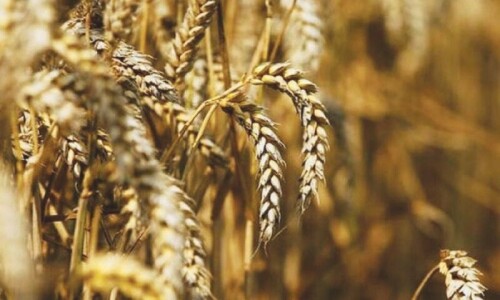PESHAWAR: The provincial government wanted to de-radicalise youth of Khyber Pakhtunkhwa and Fata by applying strategies based on indigenous researches with close collaboration of academia, said a senior official here on Thursday.
Addressing a seminar, Mutahir Zeb, additional secretary of provincial home and tribal affairs department, said that government wanted to work in close collaboration with civil society and academia to carry out indigenous research, addressing the problems of Khyber Pakhtunkhwa and Fata.
The seminar titled ‘Engaging youth in de-radicalisation of Fata and Khyber Pakhtunkhwa’ was organised by Institute for Peace and Conflict Studies (IPCS), University of Peshawar.
Mr Zeb said that department of home and tribal affairs had introduced various projects to address the issue of radicalisation in the society. He said that the department would facilitate innovative ideas especially from academia at University of Peshawar and researchers to address those challenges.
Fahad Ikram Qazi, another official of home and tribal affairs department, talked about the upcoming projects of the provincial government. He said that thousands of affected youth were de-radicalised since 2010 after Swat military operation. “However, it was done by military. The provincial government is also planning to start a de-radicalisation programme of its own in the prisons,” he said, adding the programme would be started in 22 prisons of the province.
The official said that another programme was also being planned to provide psychological sessions and some skills to de-radicalise the youth. He asked the academia to share their ideas with them to make the programme more effective.
Earlier in his inaugural speech, IPCS director Dr Jamil Ahmad Chitrali said that the newly established institute was envisioned to be the major forum for research and training in Khyber Pakhtunkhwa to train midcareer professionals and young graduates of the country for peace building and social cohesion.
In his presentation about gender-based violence in Khyber Pakhtunkhwa, he said that during a research in government and private schools, he found out that girls usually faced sexual violence while boys were faced with physical violence.
A majority of such violence affected children said they did not share it with their parents, Dr Jamil said. He added that youth were radicalised and prone to violence owing to lack of support since very beginning. Instead o using proper channels, parents often did not guide their children rather encouraged their children to answer violence with more violence, he said.
Dr Adnan Sarwar Khan, dean of faculty of social sciences, University of Peshawar, in his speech said that IPCS would soon become a centre of excellence in research, providing policy guidelines for politicians and establishment. He said radicalisation in the society was a major hurdle in progress of the nation.
Other speakers included Dr Mohammad Zafar, Dr Basharat Hussain, Dr Irum Irshad, AqeelYousafzai and Fasihuddin. The seminar also attended by many professors, researchers and students of various departments.
Published in Dawn, December 5th, 2014













































Dear visitor, the comments section is undergoing an overhaul and will return soon.